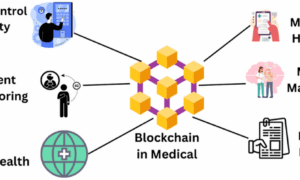Healthcare is one of the most complex and demanding fields in the world. From doctors and nurses to therapists and specialists, the system relies on a wide range of professionals to meet patient needs. Among these important contributors are professional health assistants, who serve as a vital link between patients, families, and healthcare providers.
Professional health assistants take on a wide variety of responsibilities, often blending administrative, clinical, and supportive roles. By helping with routine tasks and supporting patient care, they free up highly trained clinicians to focus on advanced treatment, ensuring that healthcare systems run more smoothly and effectively.
Understanding the Role of Health Assistants
Health assistants provide both direct and indirect support in medical and community settings. Their responsibilities often include taking patient histories, assisting with mobility, monitoring vital signs, and helping with rehabilitation exercises under the supervision of licensed professionals.
They frequently manage records, schedule appointments, and ensure clear communication between patients and healthcare teams. Those interested in this career can read more about Allied Health Assistants, who represent one of the most recognized categories in this field. They work closely with physiotherapists, occupational therapists, and other allied health professionals to carry out treatment plans and support recovery. By acting as extensions of licensed clinicians, health assistants contribute directly to patient outcomes while building strong, supportive relationships with the people in their care.
Why Health Assistants Are Crucial to Modern Healthcare
The growing demand for healthcare services means that doctors and nurses are often stretched thin. Health assistants help bridge the gap by handling routine care, reducing administrative burdens, and making sure patients receive the attention they need. This improves efficiency in clinics, hospitals, and community programs, while ensuring that no patient feels overlooked.
Health assistants are critical in expanding access to care. In rural or underserved areas, they play an important role in supporting limited healthcare staff. Their ability to perform delegated tasks allows communities to maintain higher levels of service, even when resources are constrained. This contribution directly impacts health outcomes and quality of life for countless individuals.
Key Skills and Competencies
Health assistants require a unique blend of skills that combine medical knowledge, organizational abilities, and interpersonal strengths. Clinical skills such as taking vital signs, applying basic first aid, and supporting mobility are paired with administrative tasks like managing records or coordinating schedules.
Just as important are soft skills, including empathy, communication, and patience. Many health assistants spend more time with patients than doctors or nurses, making them central to building trust and ensuring comfort. Their role requires technical competence and the ability to connect with individuals facing illness, injury, or stress.
Training programs for health assistants emphasize this balance, preparing graduates to adapt to the needs of varied clinical environments. From rehabilitation centers to long-term care facilities, their versatility makes them highly valuable members of healthcare teams.
Areas Where Health Assistants Make an Impact
Professional health assistants work across diverse settings, each with unique responsibilities:
- Hospitals: Supporting nurses and physicians with patient monitoring, record-keeping, and mobility assistance.
- Community health services: Helping deliver education and outreach, assisting vulnerable populations, and coordinating care across services.
- Rehabilitation centers: Assisting patients with therapy exercises, progress tracking, and motivational support during recovery.
- Aged care facilities: Providing daily support for elderly patients, ensuring dignity, safety, and comfort in their routines.
Their adaptability allows them to fill gaps wherever patient needs are greatest, making them indispensable to modern health systems.
Opportunities for Career Development
Health assistants often use their roles as a stepping stone into more advanced healthcare careers. Experience gained in assisting roles builds a strong foundation for further study in nursing, therapy, or other medical professions. Employers value assistants who pursue continuing education, as it demonstrates commitment to growth and improves the quality of care delivered.
With healthcare demand projected to rise steadily, career prospects for health assistants are strong. Increased recognition of their importance is leading to more structured training programs, certifications, and opportunities for specialization. These advancements support career growth and elevate the profession as a whole.
Supporting the Future of Healthcare
As healthcare systems evolve, the role of professional health assistants will continue to grow. Their contributions improve efficiency, expand access, and enhance patient experiences across a wide range of settings. Without them, many clinicians would be overwhelmed, and countless patients would face longer waits or reduced quality of care.
By understanding the importance of health assistants and supporting their development, healthcare providers and policymakers can strengthen the entire system. Investment in training, resources, and recognition ensures that these professionals continue to provide support in meeting the demands of modern healthcare.

Professional health assistants are more than just support staff; they are an integral part of the healthcare system. Their ability to handle a wide range of tasks, connect with patients, and contribute to positive outcomes makes them invaluable.
With demand for healthcare services on the rise, the need for skilled health assistants will only increase. Their role in simplifying processes, supporting clinicians, and improving patient care ensures they will remain a cornerstone of comprehensive healthcare well into the future.

































